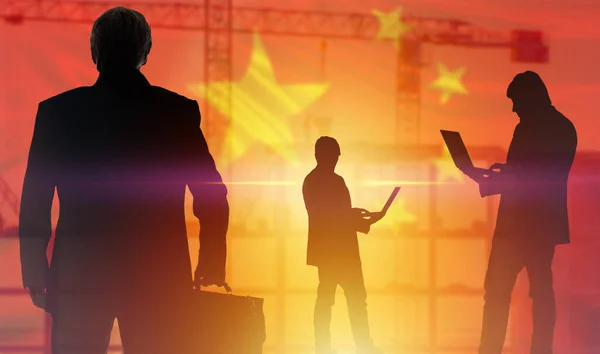China eCommerce, or how to sell 2,717 cars in 90 minutes
Written by ADG China
03/23/2018
 China ecommerce platforms such as Alibaba and JD.com are bringing a Jetsons-like shopping and entertainment reality to consumers across China. The latest trend combines live streaming entertainment with ecommerce. Think of it like watching QVC on your Amazon shopping app but instead of a boring host offering a traditional late-night infomercial experience imagine a live streaming event hosted by Lilly Singh (Forbes 2017 top entertainment influencer) in an environment more akin to a gamified Snapchat or Musical.ly with digital prizes to boot. If you think this might be just some crazy fad from China, here are some compelling results that make a good case for the direction of China ecommerce:
China ecommerce platforms such as Alibaba and JD.com are bringing a Jetsons-like shopping and entertainment reality to consumers across China. The latest trend combines live streaming entertainment with ecommerce. Think of it like watching QVC on your Amazon shopping app but instead of a boring host offering a traditional late-night infomercial experience imagine a live streaming event hosted by Lilly Singh (Forbes 2017 top entertainment influencer) in an environment more akin to a gamified Snapchat or Musical.ly with digital prizes to boot. If you think this might be just some crazy fad from China, here are some compelling results that make a good case for the direction of China ecommerce:
- Maimai Car sold 2,717 in 90 minutes – Maimaiche held a live online event on the Aliababa Tmall platform using their star host’s birthday as a theme to sell an astounding US$ 36 million.
 Maybelline soled 10,000 sticks of lipstick in 2 hours – Maybelline’s live streaming event was hosted on Alibaba’s Taobao. The cross platform event reached 5 million users and received 40 million page views on Weibo (China’s Twitter). The viewers were able to watch and interact with their favorite social media icon BabyFace backstage as she used Maybelline’s products to prepare for the actual event.
Maybelline soled 10,000 sticks of lipstick in 2 hours – Maybelline’s live streaming event was hosted on Alibaba’s Taobao. The cross platform event reached 5 million users and received 40 million page views on Weibo (China’s Twitter). The viewers were able to watch and interact with their favorite social media icon BabyFace backstage as she used Maybelline’s products to prepare for the actual event.- 100 million families engaged across 212 countries and shared US$95 million in red envelopes – The event was a cross-platform cross promotional collaboration between Taobao and China Television covering the 2018 Spring Festival Gala.
We have seen many previous efforts to leverage entertainment to drive engagement and sales. Despite huge marketing dollars the results have been uninspiring. While brand building is an important benefit, the industry is still missing the direct attribution link to drive huge dollars into these type of transformational activities.
So, what is it that is happening today in the China ecommerce sector that makes this time different and sustainable? To answer this question, I would argue that the problem has never been about the concept or even the execution around the media and entertainment aspects. The problem has been how to turn the entire sales journey from discovery to execution into a “frictionless” experience.
Amazon today has a formidable numer of one-click buyers, video infrastructure, entertainment, and logistics so is clearly best positioned but they have a challenge with the American consumer that isn’t yet comfortable to living, watching and buying though online TV (I am using “American” as a proxy for many modern societies that have great technology but haven’t embraced it as a way of life like China). Even if Amazon was to replicate the model would consumers turn to Amazon shopping as a place to visit for entertainment? Would users trust purchasing on gamified experience? Would users buy the products if they have to wait even a day? This is where China is in regards to both its infrastructure and the belief in technology as the ultimate answer to the problems in the world has created an environment that allows it to work. And not just in early adopter bubble of Silicon Valley, but at scale on a nationwide basis.
Consider the following conditions that make it possible in China:
- Mobile payment penetration rate of roughly 70% – that means nearly 1 billion people young and old, rich and poor that regularly pay online and offline by scanning a QR code and authentication with a password or biometric. There is no need to sign-up and register or deposit money in an account or swipe a card.
- A national average internet speed above 10 Mbps with higher speed in the top 100 cities. Today I regularly watch ultra HD TV at my home in Beijing without delays or buffering.
- A modern rapid logistics where companies like JD.com can deliver 85% of their warehoused products on the same-day – across all of China. Just click and it shows up in anywhere from 30 minutes to 3 hours later (my persona experience).
- A robust demand and comfort level for OTT video with 200+ million users watching regularly on their TVs and another 700+ million active mobile users
- A vibrant and active live-streaming social media community where many apps and networks each routinely engage hundreds of millions of active users. An example being Fu an Olympic athlete turned overnight social media phenom based on her smile and bubbly personality at the 2016 Rio Olympics. Her live stream attracted more than 10 million viewers that gifted her nearly USD 50,000 in under an hour.
Put this all together and you can see how China is quickly becoming both a proving ground and an ideal place for companies to bring their big hairy audacious ideas to reality.



